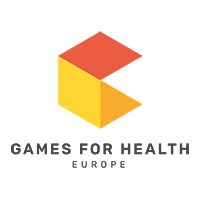Biography
Ioana Ghiga is a Technical Officer with the WHO Infectious Hazard Management Team. At WHO, Ioana manages projects on governance aspects related to access, allocation and deployment of pandemic influenza vaccine. Her professional experience includes global health policy research and clinical trials operations. Prior to joining WHO she has worked for RAND Europe in Cambridge, UK where she managed projects on various global health topics for a range of clients, including WHO, European institutions and governmental authorities, universities and private sector firms. She was also a consultant with the Evidence and Information for Policy Unit, WHO EURO and collaborated with the Graduate Institute in Geneva, Switzerland, on topics of global health diplomacy and global health governance. Ioana had various roles working on regulatory and quality assurance aspects with a contract research organisation, conducting projects in several Eastern European countries. She holds a Master of Public Health and degrees in Pharmacy as well as International Relations and European Studies.
PRESENTATION 2018
PIP Deploy, a case study of using innovative simulation methods for Pandemic Influenza Preparedness activities
Background: In an influenza pandemic, vaccines are the most important tool to protect the population. To ensure their availability, pandemic preparedness activities need to consider production as well as deployment and vaccination steps. Lack of readiness on the deployment and vaccination front could translate in failure to use the vaccine. This would be particularly problematic in a pandemic situation, in which initial availability of vaccines will be limited.
Deployment of pandemic influenza vaccine requires input and coordination of a variety of stakeholders ranging from state structures, private sector, non-governmental or international organisations. Effective collaboration and coordination necessitates agreed rules of engagement and procedures. It also requires regular training and testing of these procedures including understanding reactions of actors in uncertain scenarios.
Scope and methodology: To this effect WHO has developed PIP Deploy, an online coordination and simulation portal that allows stakeholders to exercise the operational steps and interactions needed in various scenarios of deployment of donated vaccines. The operational steps tested are product supply, allocation and delivery. The simulation allows for various roles to be played such as manufacturer, country representative, donor owner or support agency. The portal’s processes include simulation of multiple tasks for each user. Examples of tasks include establishing and updating a production plan, estimating a country needs or providing shipment details. To date one PIPDeploy simulation exercise has been undertaken involving participation from 5 countries, 3 manufacturers, 1 donor, 1 freight forwarder, 2 civil society technical assistance providers and a 5-person exercise team.
Results and conclusion: The exercise provided numerous learning opportunities for participants and developers both when it comes to further perfecting the simulation tool as well as in deployment pandemic preparedness. Simulation and gaming approaches like PIPDeploy could help the preparedness training process by bringing together several stakeholders and providing real-time feedback.

